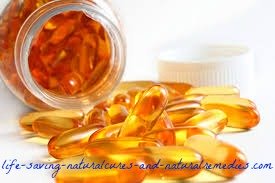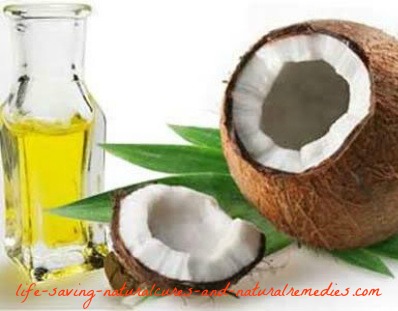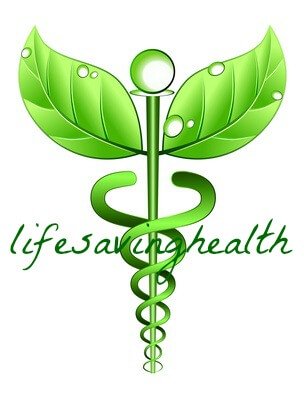Natural Remedies for ADD - Home Remedies for ADHD...
If you want to successfully treat you or your child's ADD or ADHD using natural alternatives, omega-3 fatty acid supplementation from fish oil or krill oil is definitely at the top of the list. But for this to work, you need to make sure you do it correctly. Here's why...
Article by Troy Sawyer (Certified Holistic Nutritionist, Health & Wellness Coach, Sports Nutritionist)
Updated March 9, 2025 -- This post contains affiliate links
Omega-3 deficiencies would have to be one of the most underrated causes of ADD and ADHD disorders. You never hear the medical profession talking about this one (except saying that it’s a load of “quackery”) yet multiple studies have shown that both ADD and ADHD adults and children have significantly lower levels of omega-3's in their bodies than non sufferers do. 1
And further research, including the blockbuster ADHD study performed by the University of South Australia, have been able to confirm that by giving your ADD or ADHD child omega-3 supplements - along with a small amount of omega-6 - you can improve their bad behavioural patterns quite dramatically!
Here's what researchers had to say after the study…
“Supplementation with PUFA (polyunsaturated fatty acids) over 15 weeks resulted in significant improvements compared to placebo in parent ratings of core ADHD-related behavioural and cognitive difficulties, namely inattention, hyperactivity and impulsivity, with medium to large effect sizes, and also in ratings of oppositional behaviour."
And according to head researcher, Natalie Sinn, even after the placebo group switched over from a “nothing” pill to fish oil and evening primrose oil supplements…
“The fish oil groups continued to improve after taking the supplement for a further 15 weeks". 2
So Where do
You Get Your Omega-3's From?
You can receive your daily dose of omega-3's from various sources. The easiest and the cheapest is fish oil and cod liver oil, but you do need to be careful of contamination. Many fish oil supplements contain PCB's, mercury and other heavy metals so only buy from trusted companies who's products are certified free of all chemicals, GMO's and heavy metals (such as this one).
Evening primrose oil is also a great source of omega-3 and contains the crucial omega-6 fatty acid, gamma-linolenic acid (GLA). In fact, taking fish oil/cod liver oil and evening primrose oil supplements together works by far the best (the GLA in the evening primrose oil increases the healing and anti-inflammatory properties of the fish oil). Children need around 3000 mg's of fish oil and 1000 mg's of evening primrose oil a day (according to the University of South Australia study) and adults need at least 5000 mg's a day of fish oil/cod liver oil and 2000 mg's a day of evening primrose oil for maximum benefit.
In addition to this, you should also consider taking flaxseed oil or borage oil, both of which are rich sources of omega-3's. If you do, however, be sure to only purchase the organic cold pressed oil in dark containers (and they must be kept refrigerated). Another good idea is to buy the ground up LSA mixes (linseed, sunflower and almonds) that you find in health food stores and sprinkle some over your cereals, salads, etc, for an extra “cheap” supply of omega-3.
Finally, you can purchase green-lipped mussel or krill oil for a potent dose of omega-3's if you can't find a reputable supplier of contaminant free fish oil. Both of these are equally as effective and can easily be purchased online or from any well stocked health food store. If you or your child struggles to take tablets then krill oil or green-lipped mussel can be a good choice as you can buy these in small, easy to swallow capsules.
More Proof
of the Outstanding Benefits of Omega-3's for Brain Health...
For more validation on the benefits of omega-3’s for treating ADD and ADHD, take a look at a couple of terrific quotes from some well respected authors and health experts on exactly why you and your children need be supplementing with these vital nutrients…
"The omega-3 fats EPA and DHA make prostaglandins, which are essential for proper brain function, which affects vision, learning ability, coordination, and mood. Like series 1 prostaglandins, they reduce the stickiness of the blood, as well as control blood cholesterol and fat levels, improve immune function and metabolism, reduce inflammation, and maintain water balance."
- The New Optimum Nutrition Bible by Patrick Holford (available from Amazon)
"There are numerous published reports demonstrating the benefits of supplementation with individual or combination omega-3 EFAs for many of these mental disorders as well as borderline personality disorder, conduct disorder in children, and bipolar disorder. Although it is unclear as to what are the exact mechanisms that explain the benefits of omega-3 EFAs, it is known that they do play an integral role in the functioning of the brain and neurons. Docosahexaenoic acid (DHA) is the predominant omega-3 fatty acid in the brain, and eicosapentaenoic acid (EPA) is involved in reducing inflammation. Both DHA and EPA are involved in numerous neuronal functions that include proper neurotransmitter function for dopamine and serotonin, normal membrane fluidity, ion channel and enzyme regulation, and gene expression."
- Naturopathic Nutrition: A Guide to Nutrient-rich Food & Nutritional Supplements for Optimum Health by Abram Hoffer, PhD, MD, FRCP (C) and Dr. Jonathan Prousjy, DPHE, DSC, ND, FRSH (available from Amazon)
"Found in flaxseed oil and fish oils, omega-3 fatty acids can’t be made in the body but must come from our food. The omega-3 fatty acids are necessary in the manufacture of our hormones, important for our heart, and necessary for the development of our brain. They also play a role in preventing cancer."
- Gary Null’s Power Aging by Gary Null (available from Amazon)
"Omega-3's are helpful for heart health and brain health as well as for inflammation, circulation, memory, thought and blood sugar control."
- The 150 Healthiest Foods on Earth by Jonny Bowden, Ph.D., C.N.S. (available from Amazon)
All quotes are sourced from this link The powerful role of omega-3 fatty acids for health
Potent
Health Benefits of the Humble Coconut and Why it Must be One of Your "go
to" Remedies for ADD and ADHD...
Researchers have recently discovered that consuming coconut oil and coconut milk, along with omega-3 supplements such as fish oil produces some added benefits for human brain health - particularly for young developing brains.
The coconut is considered to be one of the most beneficial foods available for healthy brain function. It's one of the richest known sources of medium chain triglycerides (only second to human breast milk) which are crucial for the production of ketones. These ketones are needed by the brain for a constant and stable supply of fuel. 3
According to coconut oil expert and author, Dr Bruce Fife, one of the biggest benefits and advantages of coconut oil for ADD and ADHD patients is it's ability to make them focus and concentrate more intensely and for longer periods. This powerful benefit helps to stop the dreaded “foggy brain” and fatigue syndrome that normally affects most sufferers. The secret is in the production of these ketones. Like a car, when the brain has a constant and clean supply of fuel, it runs smoothly and purrs along. But if it gets low on fuel or has dirty fuel - or worse, runs dry - it's going to start coughing and spluttering and eventually konk out!
Best Sources
of Coconut Oil and Coconut Milk...
When you go to purchase your coconut oil and coconut milk, it's essential that you only ever buy the raw, organic, virgin varieties (and not the "reduced fat" milk either). Dried coconut flakes are also okay to eat as well, but the oil is the most prized and beneficial. Use all of them in your cooking as much as possible (coconut oil doesn’t go rancid or produce trans fatty acids and free radicals when it’s heated so it’s perfectly safe to use as a cooking oil). Adolescent ADD and ADHD sufferers need at least 1-2 tablespoons of coconut oil every day and adults need 3-4 tablespoons per day so extra supplementation will be required (and it's easily consumed when it's added to smoothies, tea or coffee, etc). Only shop at your local health food store or a trusted online company such as Amazon or Ebay for your raw, organic virgin coconut oil and coconut milk.
Go from natural remedies for ADD - omega-3s - to more home remedies for ADHD
Recent Articles...
-
Best Natural Remedy for Arthritis...
Mar 13, 25 11:00 AM
One of the most effective treatments for arthritis is a unique combination of glucosamine, chrondroitin, MSM biological sulphur and collagen. So here's how to use these powerhouse substances effective… -
5 Awesome (& Fast Acting) Home Remedies for Chapped Lips...
Mar 06, 25 11:00 AM
Want to get rid of your awful dry chapped lips fast without having to resort to those commercial (alcohol infused) chapsticks? Here’s a simple home remedy that works like a charm, along with other nat…



Yes, We Value Your Comments and Opinions...
Ask a question or have your say on what you've just read by leaving us a comment in the box below...